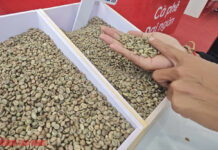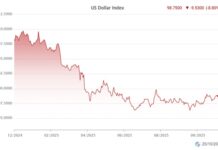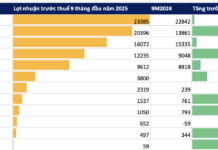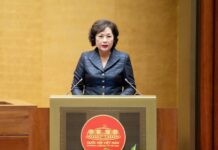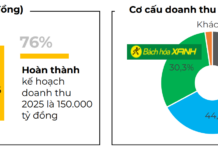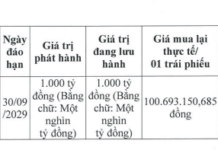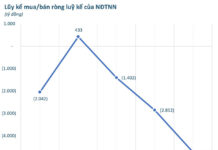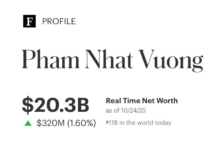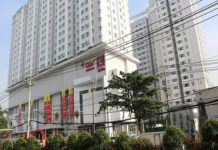
In the development of the socialist-oriented market economy, economic organizations and people always receive support and create favorable conditions for a conducive investment and business environment.
Especially, whenever the economy faces difficulties due to crises, natural disasters, pandemics… the attention, difficulties removal, and support for development from the Government, ministries, sectors, and local governments become even more apparent.
For banking activities, to fulfill its mission, the State Bank of Vietnam (SBV) has been using policy mechanisms as an important resource to support businesses and individuals to overcome difficulties, recover, and grow in the most difficult times of the economy, such as the impact of the global economic crisis (2008-2013) and the COVID-19 pandemic and economic recession, high inflation in some economies, large economic regions (2020-2023)…
Mr. Nguyen Duc Lenh – Deputy Director of SBV Ho Chi Minh City Branch assessed the results of difficulties removal, recovery, and growth of businesses, the economy, and macroeconomic stability that bear the hallmark of credit policy and credit of SBV. From the perspective of supporting businesses, given the conditions and requirements of objective economic laws, it can be said that many credit policies of SBV in the past and present are effective policies that carry great humanitarian significance. That significance is reflected in the following four main aspects:
Firstly, SBV effectively uses credit policies to contribute to the successful implementation of the dual task: ensuring macroeconomic stability, supporting economic growth over time. Many specific credit policy mechanisms have been applied to develop priority sectors and areas as economic growth drivers.
Among them, the credit policy for the development of agriculture, rural areas, and farmers under Decree 55 is an effective policy, implementing the big trend of the Party’s development of this economic area. Credit capital has made important contributions to achievements in ensuring food security; in exporting agricultural and aquatic products; in developing farms and new rural areas.
Considering only the area of Ho Chi Minh City, the City with the main industrial, commercial, and service economic structure, but agriculture is still concerned with developing in accordance with the big orientation of the Party and the Government, linked to the development of high-tech agriculture, agricultural tourism; new rural areas… The outstanding loan debt for this sector always accounts for about 9% of the total credit debt in the area. Specifically, the debt for loans under Decree 55 reached VND 339 trillion, for 1.66 million customers, an increase of 14.7% compared to the end of 2022.
SBV also implements low-interest rate policies for industries and sectors that are economic growth drivers. Accordingly, SBV implements short-term credit programs in Vietnamese dong with interest rates not exceeding the annual interest rate limit (currently 4%/year), for 5 groups of industries, sectors including: small and medium-sized enterprises; exports; agriculture and rural areas; supporting industries and high-tech application enterprises. In the area of Ho Chi Minh City alone, the current outstanding loan debt reached about VND 200 trillion, of which loans for small and medium-sized enterprises accounted for over 60% of the total outstanding loans for this program. Low-interest rates along with good credit circulation, the program has demonstrated its meaningfulness and practical effectiveness for businesses.
Secondly, implementing direct credit solutions and sharing to support businesses in difficult situations such as crises, natural disasters, epidemics; economic difficulties…, through the application of debt restructuring mechanism, keeping debt groups; interest waiver and reduction for loans.
Specifically, the application of the mechanism of debt restructuring to keep debt groups intact has helped businesses reduce the pressure of loan repayment, create cash flow to maintain and stabilize production and business. The reduction of loan interest rates helps businesses reduce financial costs, interest costs to reduce difficulties.
From an administration perspective, both activities increase costs for credit institutions (CIs): the cost of risk provisioning; and reduce income to share with businesses and people. However, above all, they will bring benefits and the common goal of supporting businesses and people to overcome difficulties, thereby supporting and promoting economic growth. This reflects the humanitarian significance of the banking sector in the difficult times of businesses and people.
Accordingly, during the historic COVID-19 pandemic, millions of business customers, cooperatives, and business households, with trillions of dong of outstanding loans, were restructured to keep debt groups intact and many businesses and business households received interest waivers and reductions, maintaining their production and business activities due to the impact of the pandemic to stabilize and develop despite difficulties.
Thirdly, the credit policies of the Government and SBV contribute to ensuring social security, restricting and preventing loan sharks. Through the activities of the Social Policy Bank (SPB), it has made an important contribution to supporting the poor, vulnerable people to have a better life thanks to the effective implementation of social policy credit programs; as well as timely support for workers who lose their jobs or stop working due to natural disasters, epidemics, especially the COVID-19 pandemic, with very humane support from policies.
In Ho Chi Minh City alone, lending under social policy credit programs (through SPB) reached VND 10,330 billion, with 183,749 customers who are poor and have difficult circumstances (belonging to the target group), an increase of 39% compared to the end of 2022. In which, the credit program solves employment still accounts for the highest proportion, accounting for 77% of the total debt of the City’s SPB. Through the program, the target group has capital for production and business, creates employment, income, and improves their lives.
Fourthly, efficiently and flexibly using operating tools combined with administrative reforms and the pioneering role of State-owned CI through the implementation of preferential credit packages to support businesses and the market: such as the 2% interest support package of the Government for groups of industries affected by the pandemic; the VND 120 trillion credit package for social housing and rental houses for workers to support the real estate market; the VND 15 trillion credit package to support and develop forestry and aquatic sectors; the VND 20 trillion credit package for consumer loans (through the activities of consumer financial companies); along with other credit programs such as: stabilizing market loans; stimulating investment loans with creative and specific ways of doing and acting.
The above policies, programs, and actions of the banking sector have a deep humanistic significance in the socialist-oriented market economy, both promoting the effects of market economic laws to encourage competition, development; and helping to overcome limitations and especially remove difficulties and provide timely support to the people and businesses.


